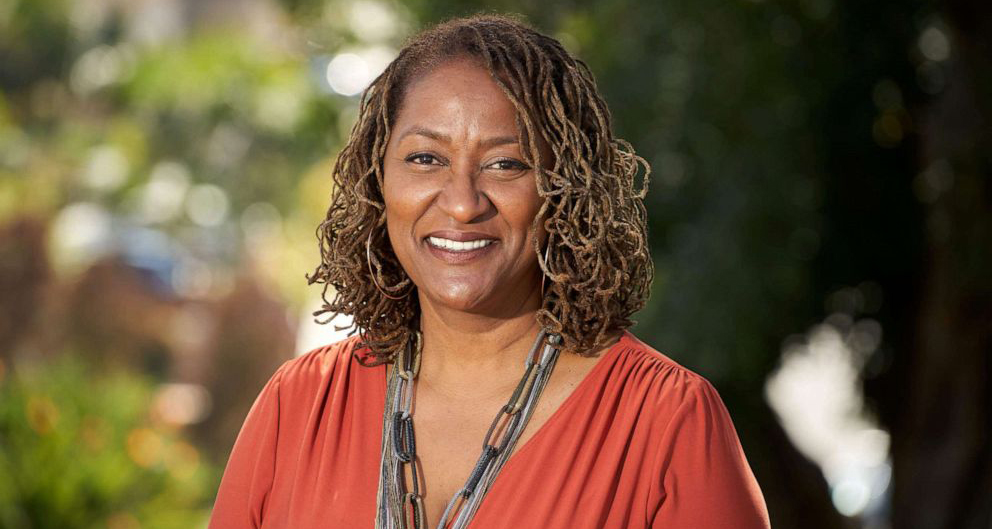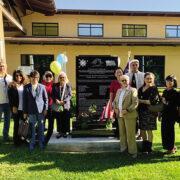
CALIFORNIA State Senator Holly Mitchell has her eyes set on a new role come November 3: Los Angeles County Supervisor for the 2nd District.
The senator is up against LA City Councilmember Herb Wesson in the race to replace Supervisor Mark Ridley-Thomas, who is terming out after 12 years.
Mitchell pitches her experience in non-profits and policymaking, including as the current chair of the Budget Committee, to oversee one of the largest economies in the country. All of this has earned her endorsements from Governor Gavin Newsom to Vermont Sen. Bernie Sanders.
The five-member Board of Supervisor is the governing body of LA County with a budget of $37 billion and drives decisions on key programs, from COVID-19 management to combating homelessness.
In an interview with the Asian Journal, Mitchell speaks about what she would bring to the county’s 2nd District, which spans from Carson to a portion of Downtown LA.
Asian Journal (AJ): You have a background in non-profits, have worked in the Assembly and Senate. What makes the supervisor’s position appealing to you and how will your background translate?
Holly Mitchel (HM): I was on a panel with a woman with the California Budget Policy Project and they’ve done this amazing study and index on the status of women across the state. I pushed to make sure that the data is not only county by county but broken down by race and age. As a policymaker having access to that information gives me the resources and tools I need to be a better policymaker. My desire to now transition to the Board of Supervisors creates an opportunity, even in a 10 million resident county, to really drill down in terms of the service delivery and support to residents.
I have spent my entire career in preparing for this kind of role. When I think back to my experiences with the Western Center doing legal aid advocacy, my experiences running Crystal Stairs, running direct programs that the county funded, and my 10 years now in the Legislature with four years as budget chair — that all prepared me to understand the work of the county fundamentally, understand the relevance of departments the county oversees, and have a real handle on the budget process, which is going to be even more important as we go into the next 12-18 months. It’s a drill-down opportunity to make sure that I have the opportunity to make sure that county residents have someone serving them with true integrity, who believes in accountability and believes in government service.
AJ: The 2nd District is vast and covers areas like Carson, which in addition to the Black and Latino communities, has a big Filipino American population. For these are three different communities, the past few months have been incredibly difficult. What are some of what you’re hearing when you’re going out and meeting with folks? And how can the supervisor’s office help with that and make sure these services and resources are being allocated properly?
HM: It’s interesting because so many of the communities that have been disproportionately impacted by COVID are the same communities that were struggling before COVID. So much is really the same messaging I’ve heard from constituents before COVID. People are overwhelmed and afraid. Housing affordability — while people are appreciative and understand the relief that the state, county and city all brought forward in terms of eviction protection, people are asking the questions about, ‘What about when the rent is due?’ Mom and pop homeowners are like, ‘This is my income. This is part of my retirement plan and I’ve now not collected any rent since April.’ Parents are in this crazy kind of betwixt and in between place of really struggling.
I hear from the childcare provider community who say, ‘Thank you Senator Mitchell, we know that you stood up for us, and through the budget process, we got additional resources.’ So acknowledging that they were essential workers, giving additional resources so they can clean and sanitize and all that. But in the childcare provider communities, we’re seeing school-aged siblings of the kids we provide care for not having the space or the real tools to help them because parents are bringing them because they don’t have a choice when they have to go to work. The pandemic is really a struggle because of how we live in this density of our communities so people aren’t able to quarantine at home in a bedroom, in isolation or have a bathroom that no one else uses.
The last thing I would add separate from the pandemic is this concern about policing and the experience with policy and the ongoing use of excessive force and the growing lack of trust between community and law enforcement. That’s everything from the hate crimes and the broader API community’s experiences as a result of this president and the pandemic to the Black and brown communities experiencing excessive use of force. There’s just this fear and hatred that is really palatable.
AJ: Since you brought up the anti-Asian hate crimes, there have been hundreds of incidents in the county. As future supervisor, what would the role be in helping investigate and prosecute? Also when you bring up policing, in our community, there’s a fear of going to the authorities.
HM: I’ve had conversations with A3PCON and Manju Kulkarni and I have been allies back when I worked at the Western Center so we’ve known each other for 20+ years. I’ve looked at the statewide data and I’m aware of the LA County data. There’s this notion that people aren’t reporting so how can we elevate it? People are afraid and that’s something that we’ve got to deal with and I’m deeply concerned as the sheriff has a strange set of blinders on that he can hear nothing and see nothing in terms of how he and the Sheriff’s Department have turned a blind eye.
It’s hard to go to a community and say, ‘Have faith, trust and you have to report,’ when I can’t guarantee the decency with which you will have an experience with the law enforcement. So it’s an issue we’ve got to address. It is a culture that is not open to hearing our true needs of the community that they take an oath to serve.
AJ: Talking about the dissemination of information from the county level— have you noticed other ways supervisors can directly talk to their constituents when it comes to the reopening guidelines, especially for small businesses who have to invest in plexiglass or other resources and are usually given a day’s notice?
HM: It really is a frustration because I see that [Supervisor Kathryn] Barger is doing daily press conferences and we’re using technology in ways that we never have in terms of Zoom events and town halls…While we’ve become very comfortable with technology and using git to do outreach, I’m not sure that it’s really touching the people who need it most. So it seems to me that it needs to be combined with some good old fashioned community outreach. One thing that the Board of Supervisors have — that I certainly never had at the state level — is a healthy staffing budget where you can have multiple district offices and field deputies who really should be spread deep in the community. I’ve thought about hiring community ambassadors who folks can go to, like church leaders. I don’t know the board really invests in understanding that and connecting with those people so they can get deeply into grassroots communication. It’s hard and takes an investment of time but that’s what you have to do to really stay connected to what the broader needs of your community are.
AJ: So it’s safe to say that if elected, your staffing will reflect the areas you’re covering?
HM: Absolutely, and I’ve got a strong track record of that in terms of my staffing at Crystal Stairs, which at one time had 500+ employees, as well as my 10 years in the Legislature. It’s not only staffing, but with the idea of expanding my footprint into the community with additional ways to support community influencers. Also to mention, the 100+ boards and commissions because as a member of the Board, I would have appointment opportunities and really shaking that up and thinking creatively about who needs to serve on these. It shouldn’t be the same group of 50 people who are already overworked, but to go deeper into the community to create those opportunities to nurture and groom and grow new leadership.
AJ: While attention is on the national race, what’s your pitch for this local, countywide position that arguably will touch residents more on a day-to-day basis?
HM: While focusing on focusing on flipping the Senate or the White House is sexy and important, however, it is the down-ticket races like the Board of Supervisors, the judges, district attorney that really have an impact on your day-to-day life. We have the responsibility to understand the level of government, to know the role of the board of supervisors and understand their individual and collective power. It’s five people who make decisions on behalf of 10 million. They touch everything from parks and rec, public health, mental health and aging services. These seats don’t turn over very often and everybody typically serves their full term, and they’re very powerful positions.
This is a unique opportunity. We have to weigh in to really think what skill set we think the next supervisor should have. We cannot view elections as popularity contests. It is a job interview and all of us are on the interview panel, and people need to think about it that way.
AJ: Prop 16 is on the statewide ballot to restore affirmative action. What would that mean on the county level?
HM: That’s a great question because of the major impact of Prop 209 — even though that’s not the way it was sold to us 25 years ago — was going to have on contracting for women-owned businesses and minority-owned businesses. The issue is to make sure that business men and women of color have an opportunity and fair chance on bidding on critical government contracts. The county, with the $37 billion budget, oversees a great deal in new development and opportunity. With regard, Prop 16, that would be primarily the area where the county could get involved.






